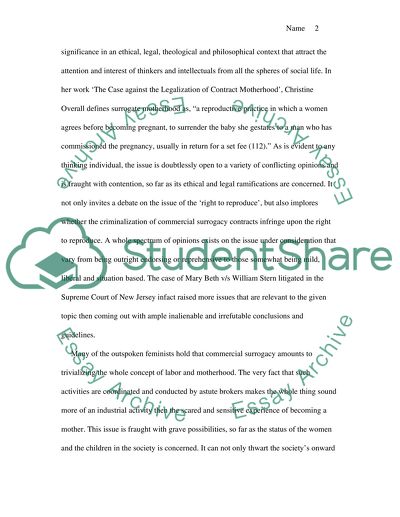Cite this document
(Ethics and Surrogate Motherhood Essay Example | Topics and Well Written Essays - 1750 words, n.d.)
Ethics and Surrogate Motherhood Essay Example | Topics and Well Written Essays - 1750 words. https://studentshare.org/ethics/1513602-ethics-genetics-and-reproduction-philosophy
Ethics and Surrogate Motherhood Essay Example | Topics and Well Written Essays - 1750 words. https://studentshare.org/ethics/1513602-ethics-genetics-and-reproduction-philosophy
(Ethics and Surrogate Motherhood Essay Example | Topics and Well Written Essays - 1750 Words)
Ethics and Surrogate Motherhood Essay Example | Topics and Well Written Essays - 1750 Words. https://studentshare.org/ethics/1513602-ethics-genetics-and-reproduction-philosophy.
Ethics and Surrogate Motherhood Essay Example | Topics and Well Written Essays - 1750 Words. https://studentshare.org/ethics/1513602-ethics-genetics-and-reproduction-philosophy.
“Ethics and Surrogate Motherhood Essay Example | Topics and Well Written Essays - 1750 Words”. https://studentshare.org/ethics/1513602-ethics-genetics-and-reproduction-philosophy.


